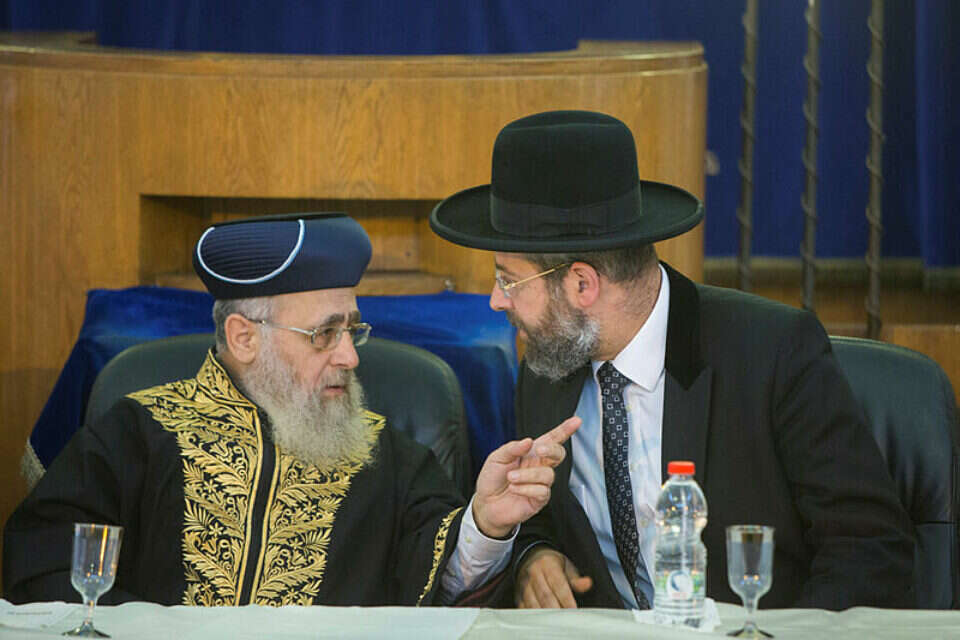In about a year and a half, the tenure of the two chief rabbis of Israel, Rabbi David Lau and Rabbi Yitzchak Yosef, will end - and the coalition is already taking its first steps in order to dramatically change the composition of the electoral assembly.
A bill by MK Moshe Tor-Paz (Yesh Atid), published here for the first time, seeks to reduce the power of the chief rabbinate in the body that elects the chief rabbi, and on the other hand, to strengthen much more liberal elements.
According to the current law, the constituent assembly has 150 members, including 80 rabbis - ten of whom are elected by the chief rabbis.
However, according to MK Tur-Paz's bill, the number of members of the assembly will be reduced to 120, and representation for the chief rabbinate will be limited to only 50 rabbis. Ten of them will be elected by the Minister of Religions, Matan Kahana, along with six kibbutz rabbis who are considered more liberal , And will also be elected by the Minister. In the proposal, MK Tor-Paz adds to narrow the steps of the Chief Rabbinate, by removing 18 heads of religious councils from the Electoral Assembly.
The bill strengthens the Knesset in the Electoral Assembly, with eight representatives from among the Knesset members (compared to five in the existing law).
In addition, in contrast to the current situation, where members of the Assembly elect only two ministers, the proposed law includes four ministers - the Minister of Religions, the Minister of Diaspora, the Minister of Immigration and Absorption and another minister elected by the government.
Alongside them will be, among others, the chairman of the Student Association and his deputy, the chairman of the Histadrut, ten public figures from the fields of spirituality, education and culture, three representatives of women's organizations working in the areas where the chief rabbinate works and three representatives Liberals in the body that elects the chief rabbis.
The meeting will also include the 25 major mayors and the six major local councilors.
The bill emphasizes female representation in the assembly, and in many of its parts there is an obligation to introduce female representation among public figures.
The proposal includes two other significant changes: one - making the secret ballot public, to prevent behind-the-scenes secret deals;
And the other change - a condition according to which a person who wants to run for the position, will have to be a judge or a judge.
This is an important detail, given the identity of a potential candidate - Rabbi David Satyu, who has the ability to judge, which is considered controversial in the eyes of the ultra-Orthodox, to say the least.
"Over the years, halakhic arbitrators with Zionist views and public responsibility have been elected to the position of chief rabbis," MK Tor-Paz wrote in the explanatory memorandum to the bill. Tor-Paz for "Israel Today", "The choice of rabbis will reflect the variety of opinions and voices in Israel."
Were we wrong?
Fixed!
If you found an error in the article, we'll be happy for you to share it with us

